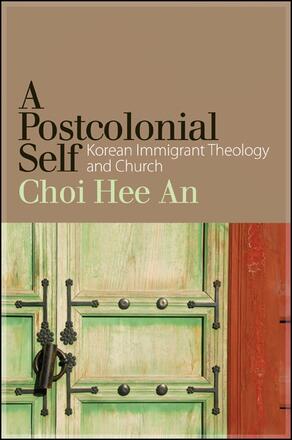
A Postcolonial Self
Korean Immigrant Theology and Church
Alternative formats available from:
A theologically informed look at the postcolonial self that forms as Korean immigrants confront life in the United States.
Description
Theologian Choi Hee An explores how Korean immigrants create a new, postcolonial identity in response to life in the United States. A Postcolonial Self begins with a discussion of a Korean ethnic self ("Woori" or "we") and how it differs from Western norms. Choi then looks at the independent self, the theological debates over this concept, and the impact of racism, sexism, classism, and postcolonialism on the formation of this self. She concludes with a look at how Korean immigrants, especially immigrant women, cope with the transition to US culture, including prejudice and discrimination, and the role the Korean immigrant church plays in this. Choi posits that an emergent postcolonial self can be characterized as "I and We with Others." In Korean immigrant theology and church, an extension of this can be characterized as "radical hospitality," a concept that challenges both immigrants and American society to consider a new mutuality.
Choi Hee An is Clinical Assistant Professor of Practical Theology at Boston University School of Theology and the author of Korean Women and God: Experiencing God in a Multi-Religious Colonial Context.
Reviews
"…a well-researched, informative, and enlightening book." — Journal of Pastoral Theology
"A Postcolonial Self is the book to read for researchers and pastors who are particularly interested in the immigrant's journey of settlement in a foreign land … Choi, a brilliant researcher, analyzes and explains the development and the functions of the term Woori in the colloquial linguistic sense, the cultural sense and postcolonial perspectives." — Practical Theology
"Despite its slim size, A Postcolonial Self packs a huge amount of data and scholarly research … a significant contribution to its field." — International Journal of Practical Theology
"This book is a comprehensive study of the identity formation of Korean immigrants in the US. It is very thorough in terms of tracking down the formation of Korean immigrant identity from their Korean roots." — Journal of Korean Religions
"Through its in-depth arguments, A Postcolonial Self brings benefits to both American and Korean church and society … This book will be of particular use by religious educators who want to better understand the contemporary Korean American religious context, as well as those interested in postcolonial perspectives on religious education." — Religious Education
"…this book may be good for students and teachers who need an in-depth study of immigrants in America from psychological, sociological, linguistical, and cultural perspectives. Many readers will appreciate the interdisciplinary aspect of this work." — Homiletic
"…An offers a brilliant discussion … A Postcolonial Self is an outstanding book. An's exploration of the evolution of the dynamic Korean ethnic self is creative and intriguing due to her deep understanding of Koreans and Korean history and her multi-disciplined analysis of the psychological factors of various historical and political circumstances. It is highly recommended for those with research interests in Korean immigrants in America, postcolonial studies, and feminist/womanist theology." — Nova Religio